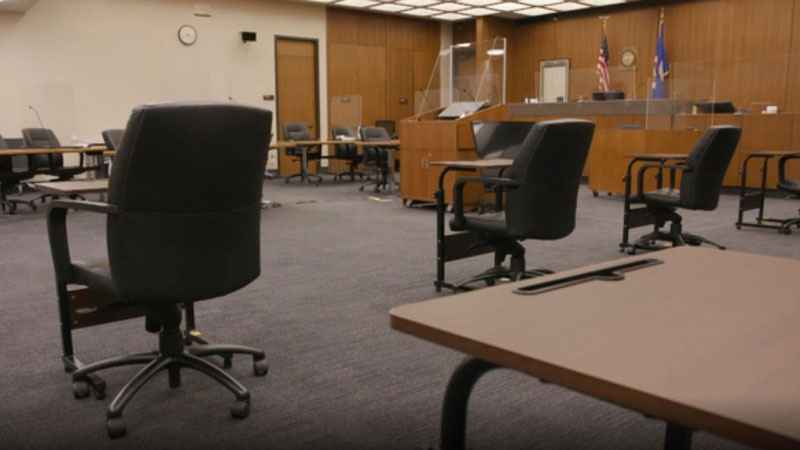‘Random’ questions hold key answers in Chauvin jury selection
[anvplayer video=”5014142″ station=”998122″]
During the first day of jury selection in the Derek Chauvin trial, defense attorney Eric Nelson stood quietly at the courtroom podium before posing one final question to the prospective juror in front of him.
"If I gave you a checkbook and it was unlimited in its resources, and you had to write a check to fix what you perceive to be the problem with the judicial system, where would you send that check," he asked.
In a criminal case centered on policing and race issues, attorneys are spending hours questioning potential jurors to get the most honest answers to hot-button issues.
Due to that, they often pose the questions in a creative way, inquiring about something that is seemingly random to get the person to reveal something about themselves that they might not even outwardly acknowledge, said Ellie Krug, a transgender attorney.

[KSTP]
"What you’re trying to do is get fair and impartial jurors, but at the same time, get into their head," she said.
Krug, who transitioned from male to female in 2009, has trained hundreds of government employees and legal professions on diversity and inclusion, with a focus on identifying implicit bias. Krug is also one of the only lawyers in the United States to have tried jury cases in both genders.
"For a lawyer who is picking a jury, you don’t have scientific method here," she said. "You have a combination of a lot of years of experience of interacting with a lot of humans in different settings, and then, just going with your gut."
Krug said during jury selection on any case, attorneys on both sides are looking for bias that a person has, whether it be explicit or unconscious.
The juror Nelson questioned answered that he would write a check to George Floyd’s family, telling the courtroom "it was a loss to that family."
Day Six: 2 more jurors selected to serve on Derek Chauvin jury, 5 jury spots remain
"Part of that question was about empathy," Krug said. "We’re dealing with the case that involves the death of a man, a very public death, and so the question is where does your empathy fall."
Another example of a strange line of questioning came later in the week, when prosecutor Steve Schleicher asked a prospective juror about his interest in sports.
"You go to games at the stadium?" Schleicher asked. The juror replied he did and that he had season tickets to the Minnesota Vikings.
"Did you watch the Super Bowl last year," said the attorney quickly following up. "There’s some people who have decided not to watch NFL football anymore as a sort of a protest of players who had taken a knee during the National Anthem… What are your thoughts about that?"
Krug said the lingering on the questions about sports may have been a chance for the prosecutor to connect with the juror on a more human level.
"A little bit of that is maybe to figure out how much of a sports man this person is, yes, but also like a, man-to-man, let’s have this kind of affinity," she said.
More Derek Chauvin trial coverage from KSTP
Later that day, Schleicher was questioning a different juror and posed this hypothetical situation:
"You’re in downtown Minneapolis and you’re not sure which way to go to get to the IDS Center. You’re walking down the street and you’re looking for directions and you see a police officer, and he tells you the IDS Center is over here and you see a bystander and he says actually it’s in the opposite direction. Which way do you think you’d walk?"
Krug’s explanation: "That’s a question about authority. Are you going to give the word of a police officer heavier weight than you would give to somebody else, who just happens to be a bystander and doesn’t happen to wear the uniform of authority?"
In addition to the questions, attorneys are also paying close attention to the jurors’ non-verbal cues.
"The implicit bias can be reflected maybe by body language, by words that the juror uses in answering the questions," Krug said, a task made exceedingly harder in the pandemic and mask-wearing in the courtroom.